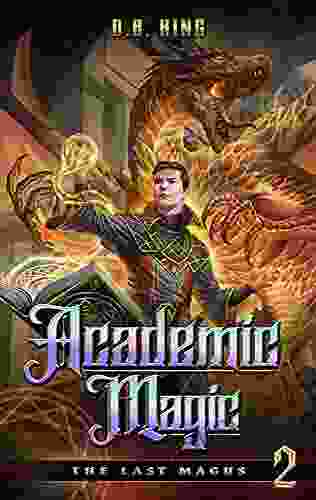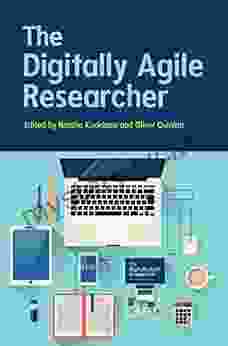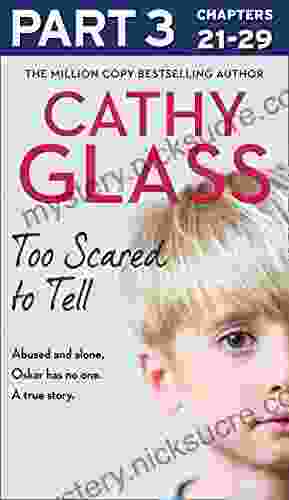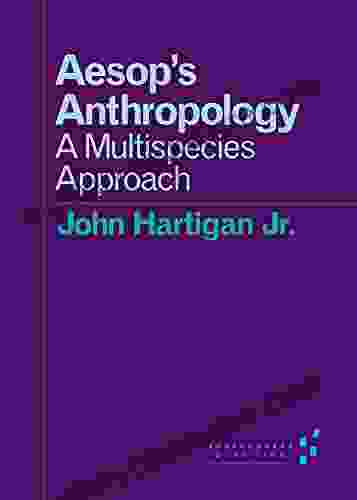Multispecies Approach Forerunners: A Comprehensive Guide to Interdisciplinary Collaboration in Environmental Research and Management

4.2 out of 5
| Language | : | English |
| File size | : | 795 KB |
| Text-to-Speech | : | Enabled |
| Screen Reader | : | Supported |
| Enhanced typesetting | : | Enabled |
| Word Wise | : | Enabled |
| Print length | : | 100 pages |
The multispecies approach is a holistic and collaborative approach to environmental research and management that recognizes the interconnectedness of all living organisms within an ecosystem. It emphasizes the importance of understanding the complex interactions between species and their environment, and how these interactions shape ecosystem structure and function. By considering multiple species and their relationships, researchers and managers can develop more effective and sustainable strategies for addressing ecological challenges.
History of the Multispecies Approach
The multispecies approach emerged in the early 20th century, with the work of pioneers such as Aldo Leopold and Rachel Carson. Leopold's seminal work, A Sand County Almanac, emphasized the interconnectedness of all living things and the importance of preserving ecosystem integrity. Carson's book, Silent Spring, documented the devastating effects of pesticides on wildlife and humans, and helped to spark the modern environmental movement.
In the 1970s, the multispecies approach began to be more widely adopted by researchers and managers. Ecologists such as Robert Paine and Paul Ehrlich conducted groundbreaking studies that demonstrated the importance of species diversity for ecosystem stability and resilience. These studies helped to lay the foundation for the multispecies approach as a key tool for understanding and managing ecosystems.
Key Concepts of the Multispecies Approach
The multispecies approach is based on the following key concepts:
- Interconnectedness: All living organisms within an ecosystem are interconnected and interdependent. Changes in one species can have cascading effects on other species and the ecosystem as a whole.
- Diversity: Species diversity is essential for ecosystem health and stability. Diverse ecosystems are more resilient to disturbances and better able to provide ecosystem services, such as water purification, air quality regulation, and food production.
- Collaboration: The multispecies approach requires collaboration between researchers from different disciplines, such as ecology, biology, chemistry, and social sciences. This interdisciplinary collaboration is essential for understanding the complex interactions between species and their environment.
Applications of the Multispecies Approach
The multispecies approach has been used to address a wide range of environmental challenges, including:
- Biodiversity conservation: The multispecies approach can help to identify and protect key species and habitats, and to develop strategies for restoring degraded ecosystems.
- Ecosystem management: The multispecies approach can help to develop sustainable management practices that maintain ecosystem health and function.
- Climate change adaptation: The multispecies approach can help to identify and protect species and ecosystems that are most vulnerable to climate change, and to develop adaptation strategies.
- Pollution control: The multispecies approach can help to identify and mitigate the impacts of pollution on ecosystems and human health.
Pioneers of the Multispecies Approach
Many scientists and researchers have made significant contributions to the development of the multispecies approach. Some of the most notable pioneers include:
- Aldo Leopold: American ecologist and author who is considered one of the founders of the conservation movement. His work emphasized the importance of understanding the interconnectedness of all living things.
- Rachel Carson: American marine biologist and author who wrote the influential book Silent Spring, which documented the devastating effects of pesticides on wildlife and humans.
- Robert Paine: American ecologist who conducted groundbreaking studies on the importance of species diversity for ecosystem stability.
- Paul Ehrlich: American biologist who is known for his work on population ecology and the effects of human activities on the environment.
- Jane Goodall: British primatologist and anthropologist who is known for her groundbreaking studies on chimpanzees.
The multispecies approach is an essential tool for understanding and managing ecosystems in the 21st century. By recognizing the interconnectedness of all living organisms and the importance of species diversity, we can develop more effective and sustainable strategies for addressing ecological challenges and protecting our planet for future generations.
4.2 out of 5
| Language | : | English |
| File size | : | 795 KB |
| Text-to-Speech | : | Enabled |
| Screen Reader | : | Supported |
| Enhanced typesetting | : | Enabled |
| Word Wise | : | Enabled |
| Print length | : | 100 pages |
Do you want to contribute by writing guest posts on this blog?
Please contact us and send us a resume of previous articles that you have written.
 Fiction
Fiction Non Fiction
Non Fiction Romance
Romance Mystery
Mystery Thriller
Thriller SciFi
SciFi Fantasy
Fantasy Horror
Horror Biography
Biography Selfhelp
Selfhelp Business
Business History
History Classics
Classics Poetry
Poetry Childrens
Childrens Young Adult
Young Adult Educational
Educational Cooking
Cooking Travel
Travel Lifestyle
Lifestyle Spirituality
Spirituality Health
Health Fitness
Fitness Technology
Technology Science
Science Arts
Arts Crafts
Crafts DIY
DIY Gardening
Gardening Petcare
Petcare Peterson S
Peterson S Mcgraw Hill
Mcgraw Hill Joseph Correa
Joseph Correa Chris Morton
Chris Morton Wyatt Mcspadden
Wyatt Mcspadden Peter J D Adamo
Peter J D Adamo Maren Stoffels
Maren Stoffels Elizabeth Anne Wood
Elizabeth Anne Wood Cecil B Hartley
Cecil B Hartley Jeff Belanger
Jeff Belanger Jim Kempton
Jim Kempton Richard W Voelz
Richard W Voelz J D Williams
J D Williams Graham Norton
Graham Norton Leah Zani
Leah Zani William L Sullivan
William L Sullivan Kendall Rose
Kendall Rose Rand Cardwell
Rand Cardwell Dianne Maroney
Dianne Maroney Zachery Knowles
Zachery Knowles Law School Admission Council
Law School Admission Council Bruce Watt
Bruce Watt Jack Disbrow Gunther
Jack Disbrow Gunther Dory Willer
Dory Willer Huberta Wiertsema
Huberta Wiertsema Charles Salzberg
Charles Salzberg Michael D Alessio
Michael D Alessio Mike X Cohen
Mike X Cohen Nick Littlehales
Nick Littlehales Veronica Eden
Veronica Eden Marla Taviano
Marla Taviano Declan Lyons
Declan Lyons Joseph Moss
Joseph Moss Richard Harding Davis
Richard Harding Davis Kevin Howell
Kevin Howell The Atavist
The Atavist Kerry H Cheever
Kerry H Cheever Caroline Manta
Caroline Manta Paul Lobo
Paul Lobo Dr Tommy John
Dr Tommy John Rita Golden Gelman
Rita Golden Gelman Troy Horne
Troy Horne Graham Hancock
Graham Hancock Elena Paige
Elena Paige Maxine A Goldman
Maxine A Goldman Dan Romanchik Kb6nu
Dan Romanchik Kb6nu C F Crist
C F Crist Julie Golob
Julie Golob Hugh Aldersey Williams
Hugh Aldersey Williams Arrl Inc
Arrl Inc Veronica Roth
Veronica Roth Robert Walker
Robert Walker Thomas Daniels
Thomas Daniels E W Barton Wright
E W Barton Wright Larry Larsen
Larry Larsen John H Cunningham
John H Cunningham Bunmi Laditan
Bunmi Laditan George Daniel
George Daniel Judith Merkle Riley
Judith Merkle Riley Pia Nilsson
Pia Nilsson Mona Bijjani
Mona Bijjani Paul A Offit
Paul A Offit Matt Baglio
Matt Baglio Max Lucado
Max Lucado John Burroughs
John Burroughs Kaplan Test Prep
Kaplan Test Prep Cal Newport
Cal Newport Malika Grayson
Malika Grayson Lily Raff Mccaulou
Lily Raff Mccaulou Charles Staley
Charles Staley David Martin
David Martin Ron Senyor
Ron Senyor John H Falk
John H Falk Susan Orlean
Susan Orlean Dave Bosanko
Dave Bosanko Hibiki Yamazaki
Hibiki Yamazaki Howard E Mccurdy
Howard E Mccurdy Elizabeth Laing Thompson
Elizabeth Laing Thompson Valliappa Lakshmanan
Valliappa Lakshmanan Shea Ernshaw
Shea Ernshaw Sandra Niche
Sandra Niche Silvia Dunn
Silvia Dunn Lew Freedman
Lew Freedman Destiny S Harris
Destiny S Harris Fmg Publications Special Edition
Fmg Publications Special Edition Stacey Rourke
Stacey Rourke Lina K Lapina
Lina K Lapina Marisa Peer
Marisa Peer Sallyann Beresford
Sallyann Beresford Daniel Prince
Daniel Prince Michael Gurian
Michael Gurian Greg W Prince
Greg W Prince Steven Kerry Brown
Steven Kerry Brown Marcia Scheiner
Marcia Scheiner Martha Finley
Martha Finley Lee Jackson
Lee Jackson Christine Mari Inzer
Christine Mari Inzer Jess J James
Jess J James Mark Young
Mark Young David Tanis
David Tanis Craig Martelle
Craig Martelle David Cannon
David Cannon Jonathan T Gilliam
Jonathan T Gilliam Brandy Colbert
Brandy Colbert Erin Beaty
Erin Beaty Craig Callender
Craig Callender Lynn Butler Kisber
Lynn Butler Kisber Charles Sanger
Charles Sanger W D Wetherell
W D Wetherell Stian Christophersen
Stian Christophersen Robert D Gibbons
Robert D Gibbons Upton Sinclair
Upton Sinclair Sterling Test Prep
Sterling Test Prep Lily Field
Lily Field Jim Supica
Jim Supica William M Baum
William M Baum Ransom Riggs
Ransom Riggs Jim Wiese
Jim Wiese Robert Moor
Robert Moor Nedu
Nedu Rob Pate
Rob Pate Ralph Galeano
Ralph Galeano Donna Goldberg
Donna Goldberg Pam Flowers
Pam Flowers Bryan Litz
Bryan Litz Clement Salvadori
Clement Salvadori Heather Jacobson
Heather Jacobson Narain Moorjani
Narain Moorjani Carol Inskipp
Carol Inskipp Oliver Sacks
Oliver Sacks E Ink Utilizer
E Ink Utilizer Nigel Cawthorne
Nigel Cawthorne Jasmine Shao
Jasmine Shao John M Marzluff
John M Marzluff Phil Williams
Phil Williams Michael Tan
Michael Tan James W Anderson
James W Anderson Jimmy Chin
Jimmy Chin Jennifer Rose
Jennifer Rose Collins Easy Learning
Collins Easy Learning Sherri L Jackson
Sherri L Jackson Martina Mcbride
Martina Mcbride Sophie D Coe
Sophie D Coe Melissa Mullamphy
Melissa Mullamphy Matt Price
Matt Price Tamara Ferguson
Tamara Ferguson Duncan Steel
Duncan Steel Simon A Rego
Simon A Rego Charu C Aggarwal
Charu C Aggarwal Joanne V Hickey
Joanne V Hickey Sarah Jacoby
Sarah Jacoby Lottie Bildirici
Lottie Bildirici John Flanagan
John Flanagan Gregory A Kompes
Gregory A Kompes Wayne Coffey
Wayne Coffey John Vince
John Vince R Scott Thornton
R Scott Thornton Martin Davies
Martin Davies Tom Bass
Tom Bass Roger Marshall
Roger Marshall Scott Hartshorn
Scott Hartshorn Meghan Daum
Meghan Daum Guy Grieve
Guy Grieve Lois Lowry
Lois Lowry Bruce Sutherland
Bruce Sutherland Jim Al Khalili
Jim Al Khalili Don Allen Jr
Don Allen Jr Max Prasac
Max Prasac Ruthellen Josselson
Ruthellen Josselson Sammy Franco
Sammy Franco Melanie Anne Phillips
Melanie Anne Phillips Dennis Adler
Dennis Adler Laurie Notaro
Laurie Notaro Nikki Carroll
Nikki Carroll Sarah Berman
Sarah Berman Doug Cook
Doug Cook Henry Malone
Henry Malone Carlos I Calle
Carlos I Calle Bruce Van Brunt
Bruce Van Brunt Jane Brocket
Jane Brocket Jeff Scheetz
Jeff Scheetz Scott Mcmillion
Scott Mcmillion Jason Runkel Sperling
Jason Runkel Sperling John Jamieson
John Jamieson Ian Tuhovsky
Ian Tuhovsky Francis Glebas
Francis Glebas Fern Schumer Chapman
Fern Schumer Chapman Marc Bona
Marc Bona Chad Eastham
Chad Eastham Oprah Winfrey
Oprah Winfrey Tom Cunliffe
Tom Cunliffe William Ian Miller
William Ian Miller Trevelyan
Trevelyan Ken Schwaber
Ken Schwaber Tony E Adams
Tony E Adams Cassandra Mack
Cassandra Mack Stedman Graham
Stedman Graham Justin Coulson
Justin Coulson Lucy Cooke
Lucy Cooke Hecateus Apuliensis
Hecateus Apuliensis Bruce Maxwell
Bruce Maxwell Lauren Manoy
Lauren Manoy Sarah Ockwell Smith
Sarah Ockwell Smith Katie Fallon
Katie Fallon Shawna Richer
Shawna Richer Thomas Carothers
Thomas Carothers Nicolas Bergeron
Nicolas Bergeron Jesse Romero
Jesse Romero Creek Stewart
Creek Stewart Sarah Baker
Sarah Baker Lee Alan Dugatkin
Lee Alan Dugatkin Dick Hannula
Dick Hannula Emt Basic Exam Prep Team
Emt Basic Exam Prep Team Ashley Christensen
Ashley Christensen Bryce Carlson
Bryce Carlson Tanya Hackney
Tanya Hackney Robert A Cutietta
Robert A Cutietta Nawuth Keat
Nawuth Keat Lewis Kirkham
Lewis Kirkham Thomas Deetjen
Thomas Deetjen Kathy Woods
Kathy Woods Ronald T Potter Efron
Ronald T Potter Efron Tey Meadow
Tey Meadow Kevin A Morrison
Kevin A Morrison Carmen Davenport
Carmen Davenport David Savedge
David Savedge Michael Mewshaw
Michael Mewshaw William Wood
William Wood Jen Howver
Jen Howver John Grehan
John Grehan Matthew Warner Osborn
Matthew Warner Osborn M E Brines
M E Brines Terry Laughlin
Terry Laughlin Roger J Davies
Roger J Davies Tim Glover
Tim Glover Phil Bourque
Phil Bourque Mary Pagones
Mary Pagones Leah Hazard
Leah Hazard John R Mabry
John R Mabry Shelby Hailstone Law
Shelby Hailstone Law Jennifer L Scott
Jennifer L Scott Jessica Holsman
Jessica Holsman Dina Nayeri
Dina Nayeri Dvora Meyers
Dvora Meyers Carrie Hope Fletcher
Carrie Hope Fletcher Gary Lewis
Gary Lewis Douglas Preston
Douglas Preston Carole Bouchard
Carole Bouchard Mary C Townsend
Mary C Townsend Shaunti Feldhahn
Shaunti Feldhahn Lsat Unplugged
Lsat Unplugged Denise May Levenick
Denise May Levenick Dan Flores
Dan Flores Elizabeth May
Elizabeth May Byron L Reeder
Byron L Reeder Sara Gaviria
Sara Gaviria Matt Mullenix
Matt Mullenix Tina Schindler
Tina Schindler Martina D Antiochia
Martina D Antiochia Leon Speroff
Leon Speroff Rowena Bennett
Rowena Bennett Cameron Mcwhirter
Cameron Mcwhirter Steven W Dulan
Steven W Dulan Jeffrey L Kohanek
Jeffrey L Kohanek Emma Warren
Emma Warren Elaine Tyler May
Elaine Tyler May Jack Canfield
Jack Canfield Dr Monika Chopra
Dr Monika Chopra Freya Pickard
Freya Pickard Samantha De Senna Fernandes
Samantha De Senna Fernandes John Moren
John Moren David Nathan Fuller
David Nathan Fuller Lisa Feldman Barrett
Lisa Feldman Barrett Mark Stavish
Mark Stavish Ashley Eckstein
Ashley Eckstein Neville Goddard
Neville Goddard Rick Trickett
Rick Trickett Julietta Suzuki
Julietta Suzuki Kat Davis
Kat Davis Sylvia Williams Dabney
Sylvia Williams Dabney Kindle Edition
Kindle Edition Orangepen Publications
Orangepen Publications Warwick Deeping
Warwick Deeping Edward Humes
Edward Humes Mark Hansen
Mark Hansen Anthony Camera
Anthony Camera Valerie Poore
Valerie Poore Barbara Acello
Barbara Acello Scarlett V Clark
Scarlett V Clark Helen Webster
Helen Webster Jessica Howard
Jessica Howard Chris Pountney
Chris Pountney Susan Frederick Gray
Susan Frederick Gray Joe Baker
Joe Baker Jill Angie
Jill Angie Aaron Reed
Aaron Reed Natasha Ngan
Natasha Ngan Richard Barrett
Richard Barrett Jim Warnock
Jim Warnock Michelle Travis
Michelle Travis Mark Stanton
Mark Stanton Nicola Yoon
Nicola Yoon Trevor Thomas
Trevor Thomas Lisa Hopp
Lisa Hopp L W Jacobs
L W Jacobs John Kretschmer
John Kretschmer Deirdre V Lovecky
Deirdre V Lovecky Carrie Marie Bratley
Carrie Marie Bratley David Wilber
David Wilber Kacen Callender
Kacen Callender Konstantinos Mylonas
Konstantinos Mylonas James Beard
James Beard Donna R Causey
Donna R Causey Leslie A Sams
Leslie A Sams Frank Muir
Frank Muir James Miller
James Miller Karen J Rooney
Karen J Rooney Diane Lindsey Reeves
Diane Lindsey Reeves Paul Rabinow
Paul Rabinow Healthfit Publishing
Healthfit Publishing Michael A Tompkins
Michael A Tompkins Peter Bodo
Peter Bodo Della Ata Khoury
Della Ata Khoury Natasha Daniels
Natasha Daniels Ira K Wolf
Ira K Wolf Olivier Doleuze
Olivier Doleuze Kevin Panetta
Kevin Panetta Tyler Burt
Tyler Burt David Eagleman
David Eagleman Luc Mehl
Luc Mehl William Rathje
William Rathje Nick Tumminello
Nick Tumminello Albert Jeremiah Beveridge
Albert Jeremiah Beveridge Victoria Honeybourne
Victoria Honeybourne R L Medina
R L Medina Steve Guest
Steve Guest Nick Gamis
Nick Gamis Ron Rapoport
Ron Rapoport Ivar Dedekam
Ivar Dedekam Tim S Grover
Tim S Grover Jacob Erez
Jacob Erez Kathleen Flinn
Kathleen Flinn Helen Zuman
Helen Zuman Emily Writes
Emily Writes Ian Leslie
Ian Leslie Mathew Orton
Mathew Orton Emily Lowry
Emily Lowry Caitlyn Dare
Caitlyn Dare Issai Chozanshi
Issai Chozanshi Elisabeth Elliot
Elisabeth Elliot Om Krishna Uprety
Om Krishna Uprety Joanne Kimes
Joanne Kimes Cathy Glass
Cathy Glass Db King
Db King Sonia Shah
Sonia Shah Sarah Prager
Sarah Prager Ed Housewright
Ed Housewright Marco Wenisch
Marco Wenisch Erin Macy
Erin Macy Sue Elvis
Sue Elvis Jennifer Appel
Jennifer Appel Sheila A Sorrentino
Sheila A Sorrentino Don S Lemons
Don S Lemons Kyra Phillips
Kyra Phillips Philip Purser Hallard
Philip Purser Hallard Nicola S Dorrington
Nicola S Dorrington Dave Rearick
Dave Rearick Vincent Chidindu Asogwa
Vincent Chidindu Asogwa Maurice J Thompson
Maurice J Thompson Stephen Harrison
Stephen Harrison Thomas Achatz
Thomas Achatz Jared Diamond
Jared Diamond Susan Garcia
Susan Garcia Ivan Gridin
Ivan Gridin Leslie R Schover
Leslie R Schover William Ellet
William Ellet Romola Anderson
Romola Anderson Elizabeth Dupart
Elizabeth Dupart John J Ratey
John J Ratey Richard Bullivant
Richard Bullivant Douglas P Fry
Douglas P Fry Kevin Houston
Kevin Houston Kelly Rowland
Kelly Rowland Julia Ann Clayton
Julia Ann Clayton Steve Barrett
Steve Barrett Janet Evans
Janet Evans Keith Brewer
Keith Brewer Matt Racine
Matt Racine Chris Bonington
Chris Bonington Michael Lear Hynson
Michael Lear Hynson Eric R Dodge
Eric R Dodge J R Rain
J R Rain Tim Freke
Tim Freke Shyima Hall
Shyima Hall Eugenia G Kelman
Eugenia G Kelman Fiona Beddall
Fiona Beddall Tricia Levenseller
Tricia Levenseller Sheri Morehouse
Sheri Morehouse Norman Thelwell
Norman Thelwell James Goi Jr
James Goi Jr Kruti Joshi
Kruti Joshi Jim West
Jim West Dounya Awada
Dounya Awada Sam Priestley
Sam Priestley Maha Alkurdi
Maha Alkurdi Heather Balogh Rochfort
Heather Balogh Rochfort Lingo Mastery
Lingo Mastery Robert Garland
Robert Garland Ivy Hope
Ivy Hope Vivian Foster
Vivian Foster Richard Drake
Richard Drake Robert Edward Grant
Robert Edward Grant Scott Mactavish
Scott Mactavish Ned Feehally
Ned Feehally Richard Henry Dana
Richard Henry Dana C M Carney
C M Carney Katharine Mcgee
Katharine Mcgee Frederick Jackson Turner
Frederick Jackson Turner Robert Larrison
Robert Larrison Shmuel Goldberg
Shmuel Goldberg K C Cole
K C Cole Jamie Marich
Jamie Marich Linda Rosenkrantz
Linda Rosenkrantz Caleb J Tzilkowski
Caleb J Tzilkowski Michael Blastland
Michael Blastland Katherine D Kinzler
Katherine D Kinzler Earl G Williams
Earl G Williams Maria Van Noord
Maria Van Noord Dian Olson Belanger
Dian Olson Belanger Dorothy Canfield Fisher
Dorothy Canfield Fisher Albert Rutherford
Albert Rutherford Scott Cawthon
Scott Cawthon C S Lewis
C S Lewis J R Harris
J R Harris Philippe Karl
Philippe Karl Winslow Tudor
Winslow Tudor S M Kingdom
S M Kingdom Meriwether Lewis
Meriwether Lewis Marc Van Den Bergh
Marc Van Den Bergh Suzanne Young
Suzanne Young Elmer Keith
Elmer Keith Cornelia Pelzer Elwood
Cornelia Pelzer Elwood Joyceen S Boyle
Joyceen S Boyle Simon Michael Prior
Simon Michael Prior Pat Rigsby
Pat Rigsby Gary Mayes
Gary Mayes Darcy Lever
Darcy Lever Bruce W Harris
Bruce W Harris Paul Murdin
Paul Murdin Niels H Lauersen
Niels H Lauersen Stephen King
Stephen King Lynette Noni
Lynette Noni Theodora Papatheodorou
Theodora Papatheodorou Pedro Urvi
Pedro Urvi Joel Best
Joel Best Michael Chatfield
Michael Chatfield Tibor Rutar
Tibor Rutar C J Archer
C J Archer Ken Sande
Ken Sande Sophie Messager
Sophie Messager Vladimir Lossky
Vladimir Lossky Matthew Marchon
Matthew Marchon Mo Gawdat
Mo Gawdat Paige Powers
Paige Powers Rebecca Musser
Rebecca Musser Skip Lockwood
Skip Lockwood Eric P Lane
Eric P Lane Lianna Marie
Lianna Marie Melissa A Priblo Chapman
Melissa A Priblo Chapman Celeste Headlee
Celeste Headlee Max Lugavere
Max Lugavere Wilhelm Reich
Wilhelm Reich Ronit Irshai
Ronit Irshai Winky Lewis
Winky Lewis Nicholas Tomalin
Nicholas Tomalin Megan Miller
Megan Miller Buddy Levy
Buddy Levy Pamela Weintraub
Pamela Weintraub Richard C Francis
Richard C Francis Stella Cottrell
Stella Cottrell Tyler Trent
Tyler Trent J Maarten Troost
J Maarten Troost Meg Cabot
Meg Cabot
Light bulbAdvertise smarter! Our strategic ad space ensures maximum exposure. Reserve your spot today!
 George Bernard ShawFollow ·18.8k
George Bernard ShawFollow ·18.8k Gabriel HayesFollow ·12k
Gabriel HayesFollow ·12k Mark MitchellFollow ·16.6k
Mark MitchellFollow ·16.6k Jacques BellFollow ·15.9k
Jacques BellFollow ·15.9k Ignacio HayesFollow ·18.4k
Ignacio HayesFollow ·18.4k Dean CoxFollow ·17.7k
Dean CoxFollow ·17.7k Glenn HayesFollow ·7.8k
Glenn HayesFollow ·7.8k Edward BellFollow ·12.9k
Edward BellFollow ·12.9k

 Henry David Thoreau
Henry David ThoreauHow To Bake In Unique Way: Unleash Your Culinary...
Baking is an art form that transcends the...

 F. Scott Fitzgerald
F. Scott FitzgeraldAcademic Magic: Unveil the Secrets of The Last Magus
Delve into a Realm of...

 John Green
John GreenThe Digitally Agile Researcher in UK Higher Education:...
In the rapidly...

 George Orwell
George OrwellZinc: Sources And Significance To Human Health
Zinc, an essential trace mineral, plays a...

 Mario Simmons
Mario SimmonsToo Scared to Tell: A Harrowing and Thought-Provoking...
In the realm...
4.2 out of 5
| Language | : | English |
| File size | : | 795 KB |
| Text-to-Speech | : | Enabled |
| Screen Reader | : | Supported |
| Enhanced typesetting | : | Enabled |
| Word Wise | : | Enabled |
| Print length | : | 100 pages |














